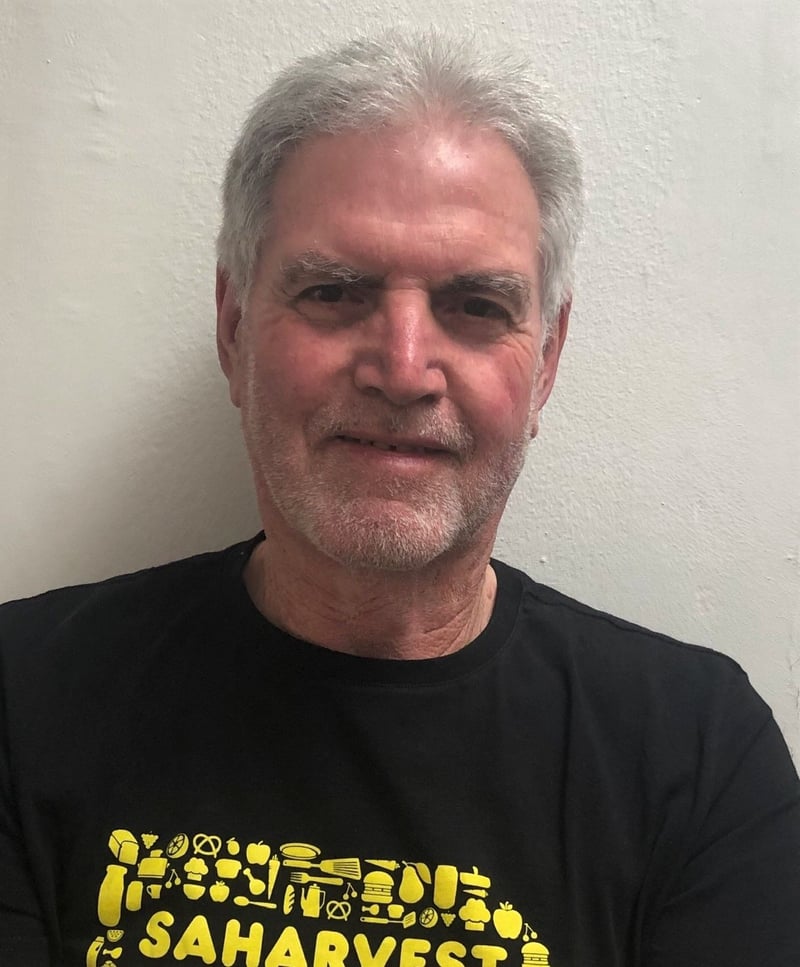Should the youth be called upon to solve world hunger?
Written by: Alan Browde, CEO and Founder of SA Harvest Save to Instapaper
World Hunger Day was initiated in 2011 by The Hunger Project, an organisation doing excellent work to raise awareness of hunger and the need for global communities to work together to put an end to hunger. This year, their campaign highlights the role of youth in creating a future free from hunger, and calls on the world to let young voices be heard. Rightfully, they note that when young people have access to education and leadership opportunities, they develop the skills to achieve self-reliance for themselves and their communities.
The tragedy, however, is that it is the youth are the most prone to the harmful effects of malnutrition and hunger. These desperate and harsh circumstances render much of our youth incapable of being able to concentrate in school, or to access the type of education that would enable them to contribute meaningfully towards developing solutions to continuous, unabating hunger.
As The Hunger Project points out, “Globally, nearly 1.6 billion people — nearly one quarter of the world’s population — are between the ages of 10 and 24 years old. They are old enough to internalise the pain of inequities that lead to hunger, but rarely consulted on finding solutions. And yet they are the most impacted. Malnourishment, stunting, starvation — these conditions create entire generations of individuals who are born into disadvantage.”
The Hunger Project challenges the global community to amplify and embrace the voices of the youth as an integral part of the conversation at every level, stating that the youth are leading the grassroots movement towards mitigating the impact of climate change and conflict by generating innovative solutions. While this may be true, the cycle must first be broken by the generation that holds the power to do so. Until this happens, the youth cannot break out of the cycle they are rooted in. As The Hunger Project points out, “In addition to life-long health challenges, food insecurity can irreversibly impact their social and emotional development. All of these factors compound and the younger generation is then faced with a steeper climb to self-reliance than their parents.” The power to effect changes rests with politicians, and turning to the youth to create solutions to the parallel issues of climate and hunger is, in effect, giving governments a free pass. While it is undoubtedly true that the voices and ideas of the youth, must be heard, the urgency for policy change has never been greater, and this power rests in the hands of law-makers.
There are solutions to hunger, and when those solutions are passed into law by socially conscious and forward-thinking governments, the systemic causes of food insecurity are addressed. This is the change that is so desperately needed, and civil society needs to stand together to hold Government accountable for making provision for the right of every South African to food and water, as entrenched in our constitution. It is in this spirit that SA Harvest is reigniting the #UnionAgainstHunger, which seeks to unify our nation in the call to Government to implement solutions that will end hunger – not through charity, but by tackling the root issues that cause hunger in the first place.
To stay in touch with SA Harvest’s plans to unite South Africa in a campaign to force Government to implement policy change, go to https://bit.ly/SAHnewsletter.
For more on SA Harvest, follow them on social media @saharvest.
Get new press articles by email
Strat PR is a full-service communications consultancy and is owned and run by Vanessa Naudé, a gifted ideas person and writer, a professional strategist and organiser, insightful, and reliable, with 21 years (and counting) of valuable experience in marketing, public relations, and event management.
Latest from
- South African Chefs Association Celebrates 50 Years of Culinary Excellence
- SA Harvest and The Cell C South African Rugby Legends Bring Christmas Cheer with Annual Food Drop
- SA Harvest Launches Virtual Food Pantry for GivingTuesday 2024
- Chad Moses Appointed Executive Head of Reddam House Umhlanga Bringing Passionate Leadership and a Strategic Vision for Holistic Education
- RCL’s Young Chef and Young Baker competitors prepare for the final showdown
- Change in transformation and gender equality in tourism will deliver economic growth
- Impala Rustenburg invests in promoting literacy in the Eastern Cape
- Collaboration of NGOs and corporates brings new relief to Langa
- Royal Bafokeng and Impala Rustenburg partner to deliver sport in schools
- City Living, Country Serenity
- Inspired Schools’ Ambassador Tendai Mtawarira appointed to UNICEF Eastern and Southern Africa Region
- Hostex is making a refreshed comeback in June 2022
- 2021 Great BIG Wine Survey once again delivers great BIG insights into wine consumer behaviour
- SA Harvest responds to KZN call for urgent relief
- Vika Shipalana joins SA Harvest board
The Pulse Latest Articles
- Zuru Turns Fifa World Cup 2026™ Into The Next Global Collectibles Phenomenon (December 17, 2025)
- A Refreshing Spin On A Joburg Roadblock With Pura Soda And Saps (December 17, 2025)
- Education Is The Frontline Of Inequality, Business Must Show Up (December 11, 2025)
- When The Purple Profile Pictures Fade, The Real Work Begins (December 11, 2025)
- Dear Santa, Please Skip The Socks This Year (December 10, 2025)
